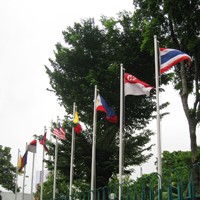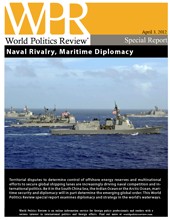
Although the tense standoff between Chinese and Philippine warships at Scarborough Shoal in the northern South China Sea has been walked back from the brink, it is a harbinger of more confrontations to come. Indeed, more such incidents are inevitable if China and the four Association of Southeast Asian Nations (ASEAN) member states — the Philippines, Vietnam, Malaysia and Brunei — that also claim the sea’s disputed islands and their adjacent waters and resources cannot agree on and implement a robust code of conduct to govern their activities there. Unfortunately, the April 2012 ASEAN Summit in Phnom Penh came and […]




